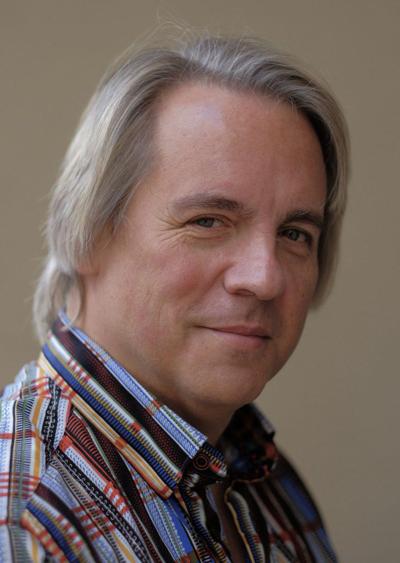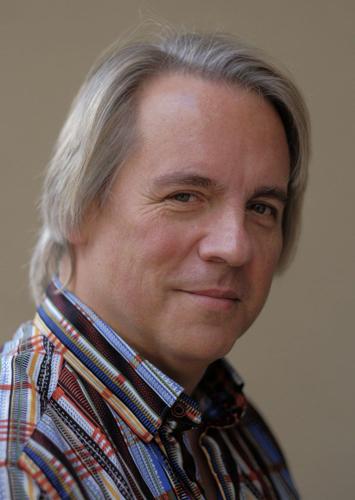Drew Hayden Taylor, award-winning playwright, novelist and filmmaker, spoke today at King’s University College about contemporary Indigenous issues.
Taylor’s talk, entitled “Indigenous Storytelling and Humour,” was part of the King’s Hour presentation series and attracted an audience of over 100 people. During the hour, Taylor discussed his personal journey as an Ojibway writer, sharing humorous anecdotes that carried an important message: Indigenous appreciation is not only about Indigenous history, but also its contemporary culture.
To this end, Taylor recalled a time when he noticed an odd trend among Indigenous plays and theatre.
“All of the characters that were being created by native authors were either oppressed, depressed, or suppressed.” said Taylor. “I found this very odd because I would look at my mother, and by no consideration would I ever think of my mother as oppressed, depressed, or suppressed.”
Taylor added that even today, after he has visited over 140 Indigenous communities, he has still yet to see the oppression depicted in those plays. To reflect and celebrate contemporary Indigenous culture, Taylor began to write humour.
“A lot of people are dealing with the karma of the last 400 to 500 years of colonization," he said. "You can teach, you can elucidate, you can educate as much through humour as you can through serious drama,” said Taylor.
To further explain his message, Taylor talked about the opening night one of his comedies, the Bootlegger Blues.
On that opening night, Taylor remembers being excited for people to watch his comedy. However, when the curtains lifted and the play began, he was caught off guard; nobody in the audience laughing except for 10 Indigenous people who were relatives of the cast. Although upset, Taylor continued to watch that group.
“After about 5 minutes, the circle of white people around the native people started to laugh. Another five minutes the next circle started to laugh,” said Taylor. “By the middle of the first act, everybody was laughing.”
When he reflected on the experience, he realized that what took the audience so long was that they were waiting for permission to laugh.
“This was at the time in an era that was just starting political correctness, where you had this entire household of white people who had been taught not to laugh at native people,” said Taylor. “When they came to see a native play, they thought they were going to be eviscerated.”
However, he said the audience experience likely gave them a new sense of appreciation for the Indigenous community.
“If given a choice between making somebody cry or making somebody laugh, I will try to make them laugh because they will appreciate more and retain more,” said Taylor.
Correction (Nov. 2, 2017 at 4:30 p.m.): this article has been updated to reflect over 100 people turned out to the event.








(0) comments
Welcome to the discussion.
Log In
Post a comment as Guest